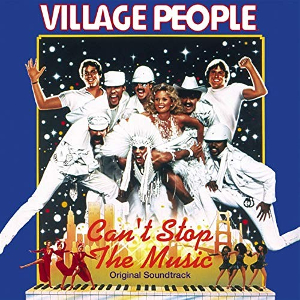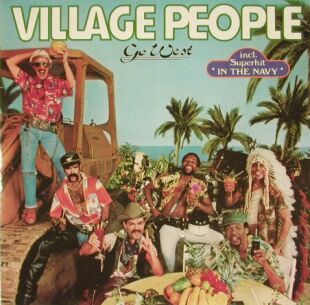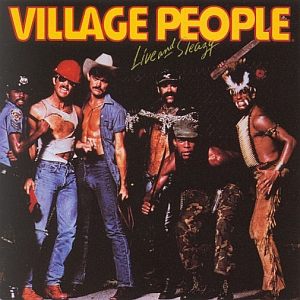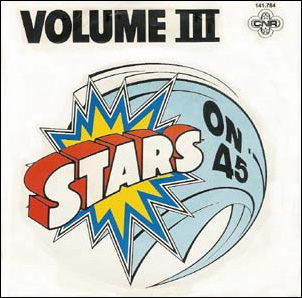
"Y.M.C.A." is a song by American disco group Village People, written by Jacques Morali and singer Victor Willis and released in October 1978 by Casablanca Records as the only single from their third studio album, Cruisin' (1978). A medley with "Hot Cop" reached No. 2 on the US Billboard Dance Music/Club Play Singles chart, while the song reached No. 2 on the Billboard Hot 100 in early 1979, placing behind both "Le Freak" by Chic and "Da Ya Think I'm Sexy?" by Rod Stewart. Outside the US, "Y.M.C.A." reached No. 1 on the UK Singles Chart around the same time, becoming the group's biggest hit. It has sold 12 million copies worldwide.
Henri Belolo was a French music producer and songwriter active during the disco era.

Can't Stop the Music is a 1980 American musical comedy film directed by Nancy Walker in her only directed featured film. Written by Allan Carr and Bronté Woodard, the film is a pseudo-biography of the 1970s disco group the Village People loosely based on the actual story of how the group formed. The film also stars Valerie Perrine, Caitlyn Jenner in her film debut, Steve Guttenberg, Paul Sand, Tammy Grimes, June Havoc, Barbara Rush, Altovise Davis, Marilyn Sokol and The Ritchie Family in their only film.

Victor Edward Willis is an American singer, songwriter and the founding member of the disco group Village People. He performed as their lead singer and was co-songwriter for all of their most successful singles. In the group, he performed costumed as a policeman or a naval officer.

"(Not Just) Knee Deep" is a song by the American funk band Funkadelic written by George Clinton. The song was released as a single for their album Uncle Jam Wants You (1979).

Macho Man is the second studio album by Village People, released on February 27, 1978. The album gained success due to its hit singles, "Macho Man" and "Key West". Rolling Stone said of the album, "It seems certain to become the first out-and-out disco album without John Travolta on its cover ever to be certified platinum".

Village People is the debut album by Village People, released on July 18, 1977. Its hit song "San Francisco " reached the top 50 in the UK, peaking at #45. In Germany, the album was released as San Francisco .

Renaissance is the seventh studio album by American disco group Village People, released in 1981 by RCA Records. The album marked a departure for the group, with a more new wave-influenced sound and less of an emphasis on disco.

Can't Stop the Music is the sixth studio album and first soundtrack by Village People, for their movie Can't Stop the Music, released in 1980. Though the movie was a commercial failure, the album was more well received, reaching No. 9 on the UK Albums Chart, #47 on the Billboard 200 in the US, and #1 in Australia. The album was reissued on CD in 1999.

Go West is the fourth studio album by the Village People, released on March 26, 1979. It features their hit singles "In the Navy" and "Go West", which the Pet Shop Boys did a successful cover of in 1993.

Live and Sleazy is the first live album and fifth studio album by the Village People and features a mixture of live and studio recordings. It was released as a double LP. The album featured numerous lead singers: original cop Victor Willis on the entire "Live" disk; on the "Sleazy" disk, construction worker David Hodo on track 1, Ray Simpson on tracks 2, 3, and 5, and G.I. Alex Briley on track 4. Horace Ott is credited as the arranger and conductor of the string and horn sections. The musicians were credited as Bittersweet.
Break Machine was an American rap act, fronted by Keith Rodgers and produced by Jacques Morali and Henri Belolo, the team behind the Village People.

The Best of Village People is a compilation album by American disco group Village People, released by Casablanca Records in 1994. AllMusic critic Steve Huey calls it "the clear-cut choice for disco and camp fanatics who want a detailed portrait of the group's career."

"Volume III" a.k.a. "Stars on 45 Volume 3" is a song issued in 1981 by the Dutch studio group Stars on 45, in the UK credited to 'Starsound'. It was the second single from the band's second full-length release Longplay Album - Volume II.

Village People is an American disco group known for its on-stage costumes and suggestive lyrics in their music. The group was originally formed by French producers Jacques Morali, Henri Belolo and lead singer Victor Willis following the release of the debut album Village People, which targeted disco's large gay audience. The group's name refers to Manhattan's Greenwich Village, with its reputation as a gay village. The characters were a symbolic group of American masculinity and macho gay-fantasy personas. To date, Willis is the only original member still remaining with the group.

Ultimate is a greatest hits compilation album by UK electronic music band Pet Shop Boys. It is their third greatest hits album, released on 1 November 2010 by their long-time label Parlophone. The album contains 18 previously released singles, in chronological order, and one new song ("Together"). Ultimate was released to celebrate 25 years since the band's first single release "West End Girls" in standard single-CD and expanded CD/DVD configurations. It charted at number 27 on the UK Albums Chart on 7 November 2010, with first-week sales of 8,886 copies. On the European Top 100 Albums it reached number 50 on 20 November 2010.

The Seventies Story is the 16th and most recent album by pop group Brotherhood of Man, released in 2002. It is based on a live stage show the group had undertaken at the time.

Solo Man is the debut studio album by Victor Willis, original lead singer of the disco group Village People. It was recorded in 1979 shortly after Willis' departure from the Village People, but not released until 2015, 36 years later. The album is a mixture of traditional R&B, gospel and soul styles.

African Queens is the fourth studio album recorded by American female vocal trio the Ritchie Family, released in 1977 on the Marlin label.

Let Me Entertain You is a studio album by French singer Amanda Lear, released in May 2016 by the independent label Boomlover.

















